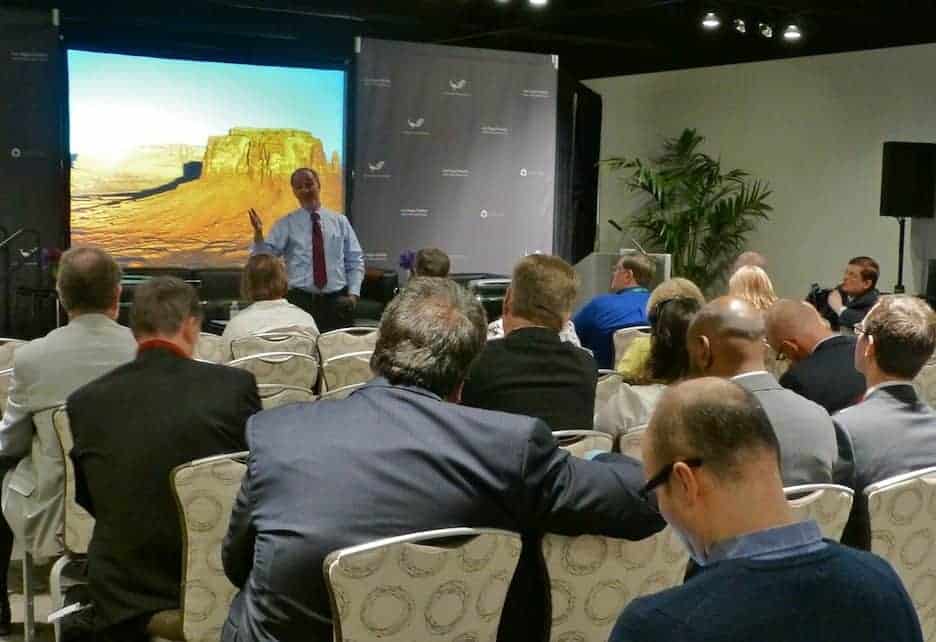
Packed room: The Specialty Sleep Association hosted a session on the Green Guides with the FTC’s James Kohm.
During the Las Vegas Market Jan. 26-30, the Specialty Sleep Association hosted a presentation on the Federal Trade Commission’s updated Green Guides. The speaker was James Kohm, an attorney and associate director in the enforcement division of the FTC Bureau of Consumer Protection.
The Green Guides were first issued in 1992 and have been revised several times since. Most recently, the FTC attempted to make the guides easier to understand and use. Their purpose is to provide guidelines for marketers who make environmental claims.
The guides emphasize consumer perceptions about specific words and phrases, Kohm explained. Marketers must qualify their claims and be prepared to substantiate them. The phrase “eco-friendly” requires a qualification, such as “eco-friendly, made from renewable materials,” or “eco-friendly, recyclable.” Other commonly used environmental claims discussed in the Green Guides include, “environmentally-friendly,” “biodegradable,” “recycled content,” “No VOCs,” “Low VOCs,” “nontoxic,” “free of” and many more.
In the sleep products industry, Kohm said, the FTC has prosecuted a number of companies for making environmental claims about bamboo. “Bamboo (fabrics and fiber) are rayon, which is not an environmentally friendly product or process.”
Seals and certifications are on the increase and self-certifications must be documented and substantiated, Kohm said. Third-party seals, if they are a “good standard,” are acceptable, but marketers always must be prepared to substantiate all seals and certifications.
“Compostable” and “biodegradable” are problematic claims, as they require light, air and water—none of which are present in landfills. Scientists have excavated 30- and 40-year-old landfills and found readable newspapers and “yellow banana peels,” Kohm noted. Yet, a product labeled biodegradable must be proven to break down within one year of customer disposal.
Avoid all deceptive claims, Kohm said. A product claim, “free of PBA’s,” when the product category generally does not contain the substance; or a claim of recyclability, when a product isn’t recyclable, are grounds for prosecution.
Marketers must take especial care when claiming “no VOC’s” or “low VOC’s” and be able to substantiate these. “Even my breath has VOC’s,” Kohm quipped.
Claims about “renewable content” need to be qualified with percentages, otherwise consumers assume it is 100% renewable, he said.
Kohm said the broadly used terms “natural,” “organic” and “sustainable” are currently under study. They can have “millions of meanings” to consumers. The FTC does not provide guidance to marketers on their usage as yet. The term “natural” is particularly fraught, as there are many “incredibly toxic ‘natural’ substances,” Kohm said.




